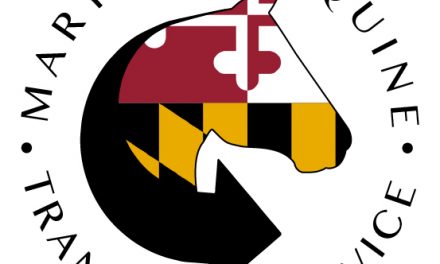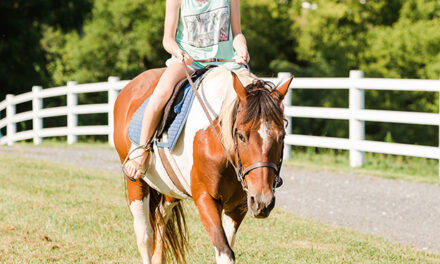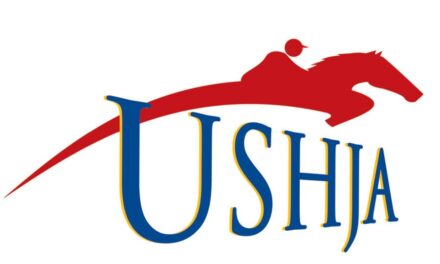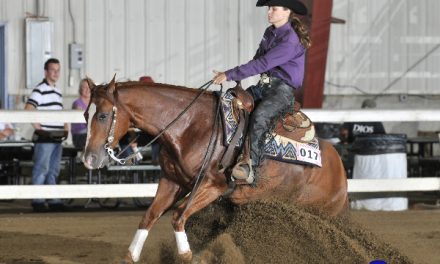first published in the April 2023 Equiery
Our Presidents’ letter this month is brought to you by Crystal Brumme Pickett, the founder and former Publisher of The Equiery, and longtime MHC member and Secretary, to recognize the many contributions to our organization and to the equine industry at large by the late Kathy Schwartz Howe. The compassion that drives individuals to establish a charity rescue is fairly universal. What set Kathy and Allan Schwartz apart from every other rescue charity at that time was their drive to pursue and elevate their own knowledge, to not only provide the best care possible but to also develop a sustainable organization. This drive manifested itself in many ways, to the betterment of the organization, and to the betterment of horses in Maryland.
By Crystal Brumme Pickett
In 1991, it was not uncommon for well-meaning animal lovers to declare themselves charities, rescuing whatever might be their animal of choice. This was pre-internet. Guidestar would not be founded until 1994; Charity Navigator in 2001. It was in the early years of Days End Farm Horse Rescue and of The Equiery, and our fledgling audience wanted to know: “which of these so-called charities are legit?” In 1994, The Equiery published a list of equine non-profits that had received the proper non-profit designations from the Internal Revenue Service. In December 2000, The Equiery developed more detailed criteria to help our readers suss out which charities were “legit.” The checklist included making financial statements available to donors and having an advisory board that included well-respected experts in various aspects of equine care. We also urged readers to understand that a non-profit business is still a business and should be run like one. As a result of that article, Kathy and Allen swiftly established such an advisory board, did everything else on The Equiery checklist, and became an Equiery client, taking advantage of the generous discount we offered to non-profits.
During those same early years, Kathy and I each became active members of the Maryland Horse Council, for similar reasons: to extend our networks throughout the state, to improve our businesses and to help improve the entire industry, as she and I shared the philosophy that a rising tide lifts all boats.
Naturally, Kathy ended up spearheading MHC’s Equine Welfare Committee which included a handful of rescues and the state’s only stable inspector at the time, Beverly Raymond. This committee identified a critical stumbling block in the prosecution of criminal neglect cases: the interpretation of Maryland State Law, Title 10, Subtitle 604 that requires that any person having the charge or custody of an animal “must provide nutritious food in sufficient quantity, necessary veterinary care, proper drink, air, space, shelter or protection from the weather.” But what did this mean? At the time, defense teams could and did bring just about any self-declared so-called expert to testify as to what this meant. So many defendants that should have been convicted were not because there was no “industry accepted interpretation” of Title 10 Subtitle 604. Enter Kathy Schwartz Howe and the Maryland Horse Council.
The MHC Board of Directors tasked Kathy’s Equine Welfare Committee to draft an initial interpretation, which they did. As Secretary, it was my job to gather the Board of Directors for the meeting to review and ratify that interpretation. At that time, MHC was organized such that every member association had a seat on the Board – with over 30 directors representing every breed and sport in Maryland. It was a full house for that meeting! A lively debate ensued; the Board parsed the Committee’s recommendations, and honed and refined them. For example, the Board did not agree with the Committee that only a man-made three-sided shelter met the requirement for “shelter or protection from the weather;” the community/Board agreed that, depending upon the terrain, a stand of trees might suffice or the crevice in an outcropping of rocks. The final product was indeed an industry-approved interpretation of the law, something that could – and has been – used successfully in court for the last 25 years.
MHC’s Minimum Standards of Care brochure (remember, this was before the internet, and ink on paper still ruled) has since been the inspiration for numerous other states to first adopt in law minimum standards of care and then to likewise provide an industry interpretation, helping to increase conviction rates of criminal neglect throughout the country.
MHC’s Minimum Standards of Care brochure is just one of the many legacies of Kathy Schwartz Howe.
From April 2023 Life & Times of Marylanders
Maryland will miss… Animal welfare activist and co-founder of Days End Farm Horse Rescue, Kathleen Schwartz Howe died on March 6. She was born on an Army base in Panama and travelled to many countries with her family as a young child. Along this journey, Howe took her family to a horse stable where she had met a horse named Toby that had been starved and mistreated. She took ownership and nursed him back to health. From there, the idea of a facility dedicated to horse rescue was born.
In 1989, Howe co-founded (along with Allan Schwartz) Days End Farm Horse Rescue (DEFHR), a 501(c)3 non-profit organization that rescues and rehabilitates neglected and abused horses. Howe wrote a book on the “how-to” of creating a 501(c)3 and shared this with many other horse rescues to assist them in getting their businesses started. She knew that animal abuse was widespread and that rescuers needed partners in their missions. Howe went on to partner with the State of Maryland and testified as an expert in many animal cruelty cases.
Howe was a Maryland Horse Council member and served on several MHC committees, including one that spearheaded the creation and adoption of MHC’s Minimum Standards of Care for Equines, setting forth industry accepted standards for what should be the minimum baseline standards for acceptable care. Due to her efforts, many abused and neglected horses have been loved, brought back to health and placed in new forever homes.
Howe leaves behind her spouse – Jerry Howe, her brothers – Keith (Linda) Walter, Kent (Aei) Walter and Kirk Walter, her children – Dawn Tansill, Allan Schwartz, Jr., Shawn Schwartz and Jennifer Rogers, her grandchildren – Megan and Matthew Tansill, Logan Schwartz, Brian and Adyllan Rogers, her nieces, nephews and other extended family members as well as many friends that loved and will miss her.













